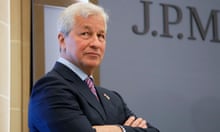China’s decision to ease rules on travel in and out of the country, the world’s second-largest economy, has offered investors hope that it could soften the toll from higher interest rates on global stock markets and unblock supply chains amid a dark outlook for 2023.
Chinese authorities said late on Monday that inbound travellers would not have to quarantine on arrival, from 8 January onward. The announcement marked the latest in a series of steps to reopen the country, which is home to vital global supply chains and 1.4 billion people.
Analysts at Goldman Sachs, a US investment bank, believe that despite the strain on China’s medical systems amid a jump in Covid cases, the overall impact will be positive for its economy.
The steps to free up movement of people in China domestically and for inward travel support the investment bank’s expectation for GDP growth above 5% in 2023, ahead of some Wall Street rivals.
“We view the new guidelines as a major step towards the full reopening, but caution on the increased challenges to China’s medical system in the near term,” the bank said in a research note published on Tuesday.
Shanghai airport, Macau’s casinos and domestic and international Chinese airlines are likely to benefit from the boost to travel from lifting restrictions, it said. Regional economies such as Thailand which also play a critical roles in global supply chains are likely winners from Chinese business travellers and tourists.
Searches for popular cross-border destinations rocketed tenfold within half an hour of the quarantine news breaking on Monday night, according to data from Chinese travel platform Ctrip.

The latest loosening comes after signals in recent weeks from China’s regime that it would wind up stringent measures on quarantine, testing and travel. Lockdowns have wreaked havoc with global supply chains, leading to long delays to products ranging from iPhones to cars.
Earlier statements from the regime on plans to reopen had already improved the outlook of some of the world’s leading fund managers, according to a survey from Bank of America (BofA).
Expectations for higher growth in China leapt to about three-quarters, up from just 13% in November. The proportion expecting the global economy to weaken fell slightly to 69%, down from 73% in November.
“The easing in recession expectations were likely driven by an improved outlook on China’s growth,” BofA said.
The heightened pace of removing restrictions in China comes as UK stock markets ready to reopen Wednesday after closing for the Christmas holiday.
US stock indices were subdued Tuesday amid thin-holiday trading, dashing hopes of a year-end rally. In China, the Shanghai stock exchange rose 1% and the CSI 300 Index, which is built from the 300 largest companies listed in major Chinese financial centres Shanghai and Shenzhen, gained 1.15%.
after newsletter promotion
Investors are likely to cling to any small improvement in the outlook at the end of 2022, after a poor year for global financial markets.
Even so, they may still be too optimistic on prospects for riskier assets such as developed economy stocks, according to analysts at Capital Economics, a financial consultancy firm.
“Investors seem increasingly to have come around to our view on inflation over the past couple of months, namely that it will fall very quickly in the US next year and a bit more slowly elsewhere,” said Thomas Matthews in a note to clients.
This means that they expect the US Federal Reserve and some other major central banks to dial down plans for for interest rate hikes.
“However, unlike us, investors still seem to expect that this will be achieved without much of a slowdown in growth,” he added.
US credit spreads, a measure which indicate the risk of borrowing in a market, suggest that investors expect US companies to fare relatively well next year. A range of corporate analyst reports in developed markets are still indicating some major economies might escape a recession.
However, while Capital Economics and investment banks including JP Morgan believe these measures signal too much positivity and recession will hit the US in 2023 and 2024, Goldman Sachs disagrees.
“Our most out-of-consensus forecast for 2023 is our call that the US will avoid a recession and instead continue progressing toward a soft landing,” it said in a note to clients on 26 December.










